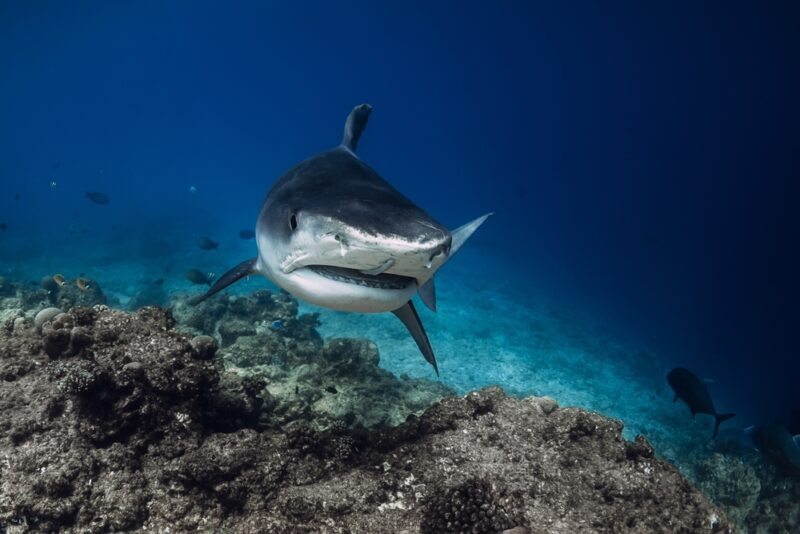There is good news for anyone afraid of sharks. Last year, there were only 47 unprovoked shark attacks, a 28-year low. The annual average over the last decade has been 70 a year.
The Florida Museum of Natural History pulls together the International Shark Attack File (ISAF) annually. This is perhaps not surprising since Florida has the highest number of unprovoked bites worldwide. Of the 47 attacks, 14 occurred in the Sunshine State. Eight of those were from a single county, Volusia, in the northeast part of the state.
Florida has more shark attacks per year than the second, third, fourth, fifth, and sixth countries on the list combined. This is likely due to the number of juvenile sharks in the area. It is also a known breeding ground for blacktip sharks.
“Some years see an increase in bites, followed by periods of decline in what appears to be a random cycle,” ISAF’s Joe Miguez told CNN. “Because of this natural variability, we cannot attribute this year’s decline to any single cause.”
For an attack to make the list, the victims must not have initiated any contact with the animals. This includes situations where they are actually trying to help the sharks, such as disentangling them from fishing nets.

Photo: Shutterstock
Only four fatalities
Swimmers and waders were the victims of half of all shark attacks in 2024. Surfers came next at 34%, and then snorkelers and free divers at 8%.
Of the 47 bites, only four were fatal. Actor Tamayo Perry died surfing in Hawaii, and three tourist fatalities occurred in Egypt, the Maldives, and international waters near the Western Sahara.
What is always clear from this yearly data is that the risk of being bitten by a shark is almost zero. The odds sit at about one in 28 million. You are more likely to be killed by lightning.
“The fact that numbers are even lower than last year reinforces the idea that humans aren’t natural prey or even likely targets for sharks,” said Neil Hammerschlag of the Shark Research Foundation.
The ISAF’s top tips for staying safe include avoiding going into the ocean at night, dawn, or dusk. Sharks are harder to see and more likely to be feeding. You should also remove jewelry, which can resemble fish scales when light reflects off them.






